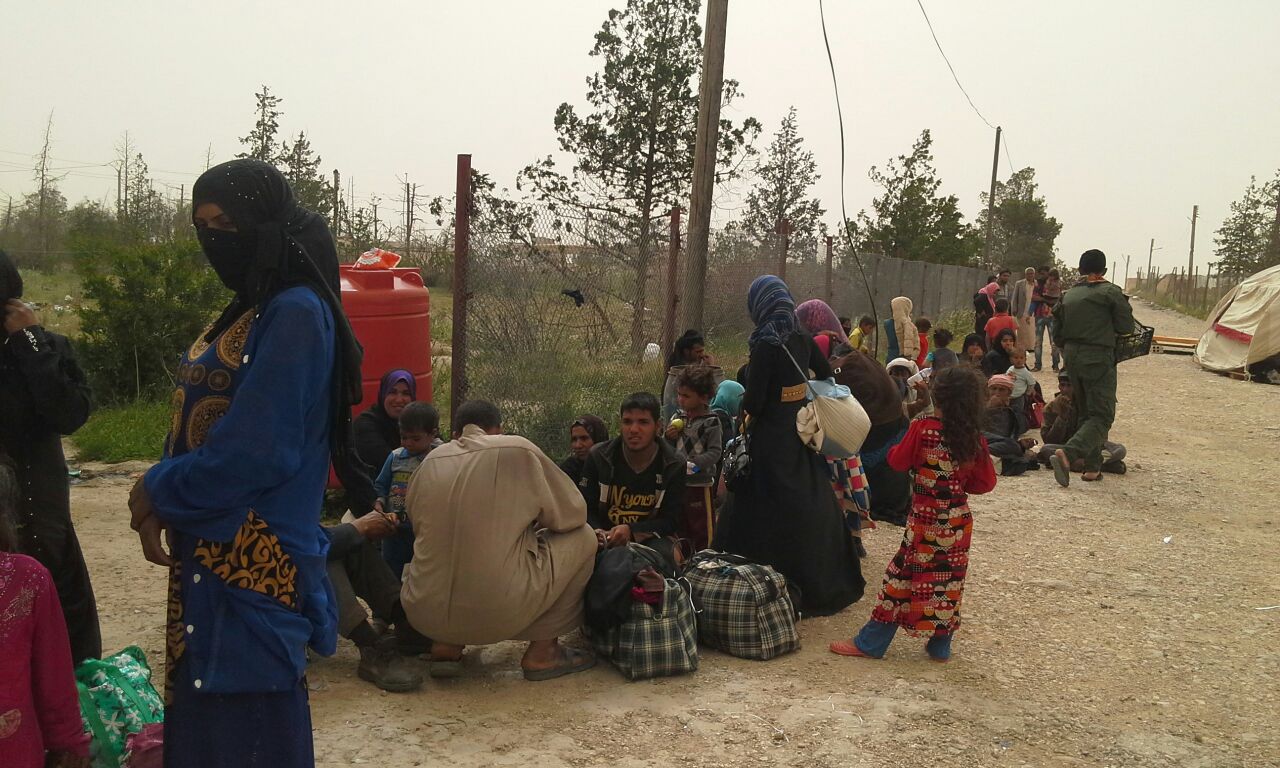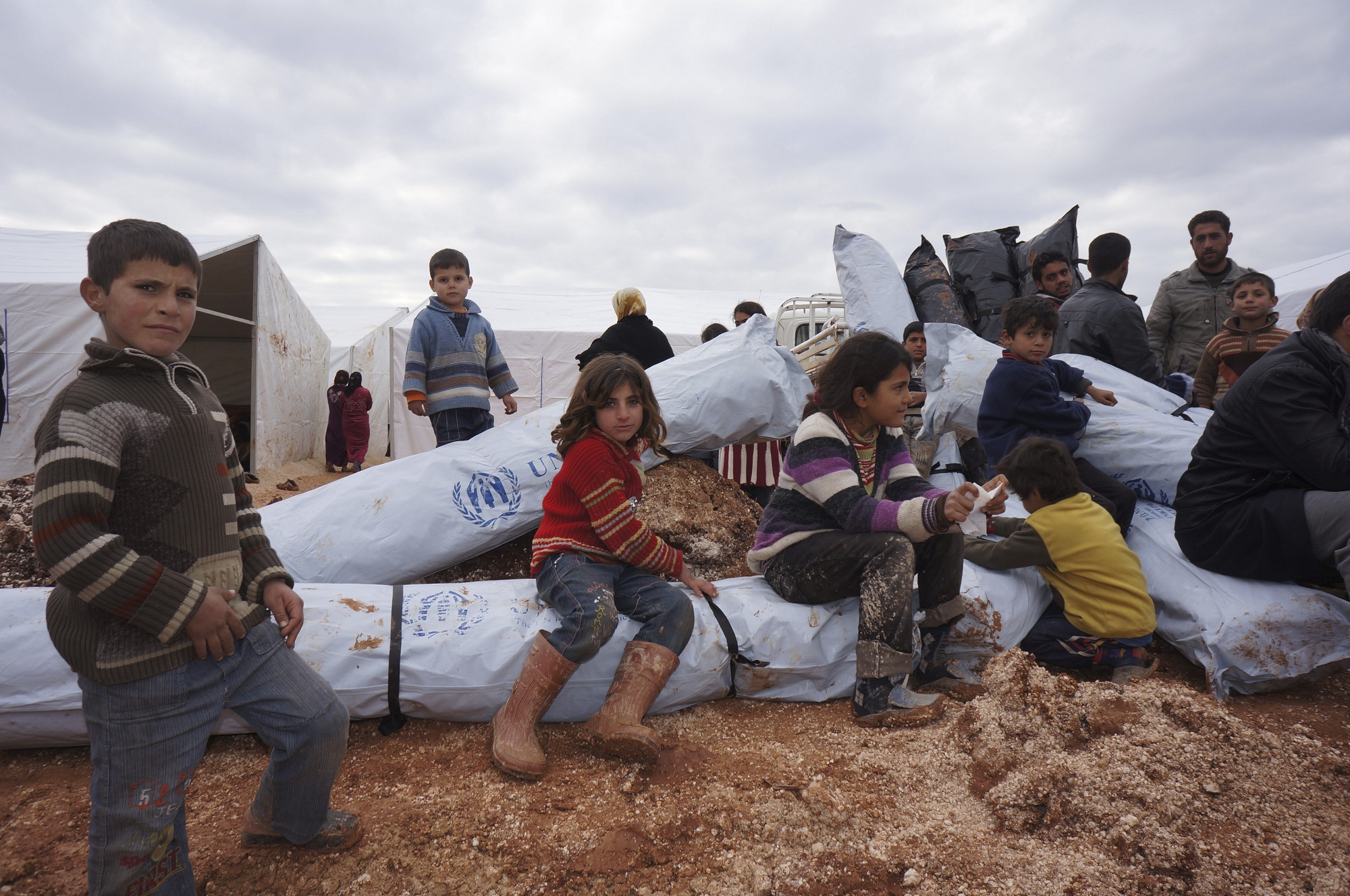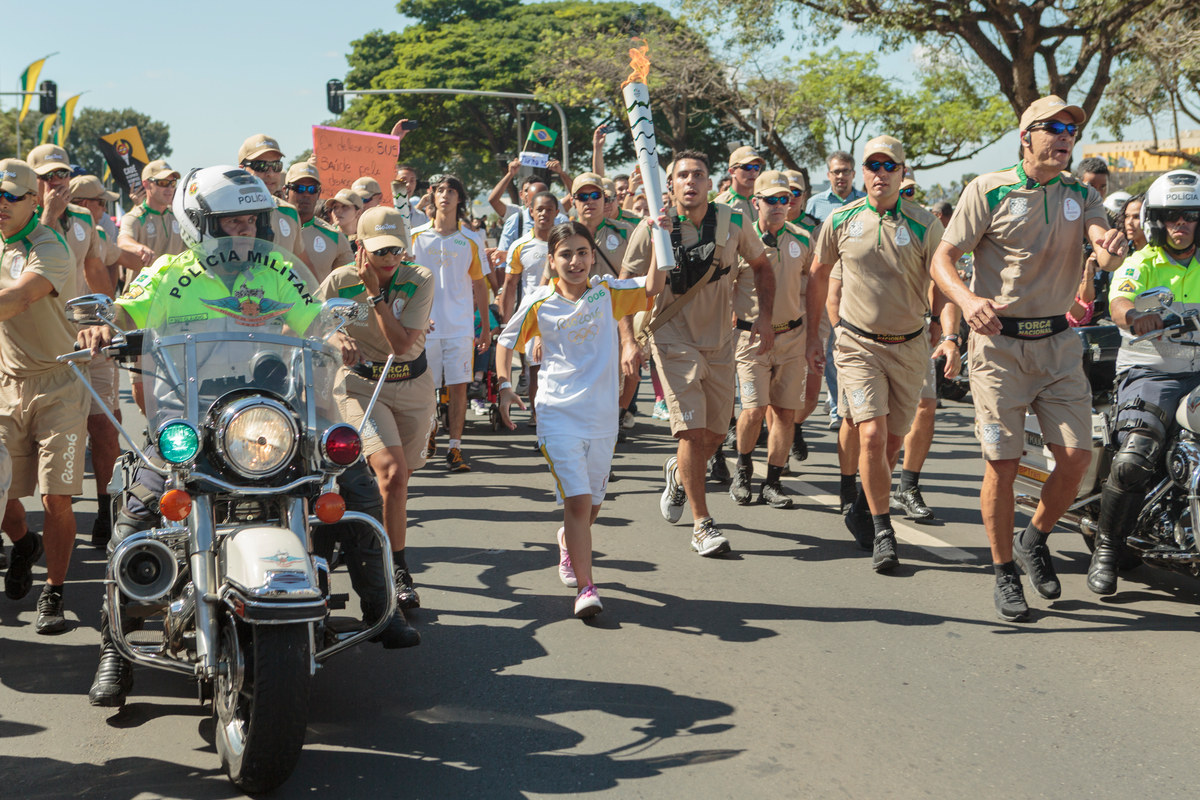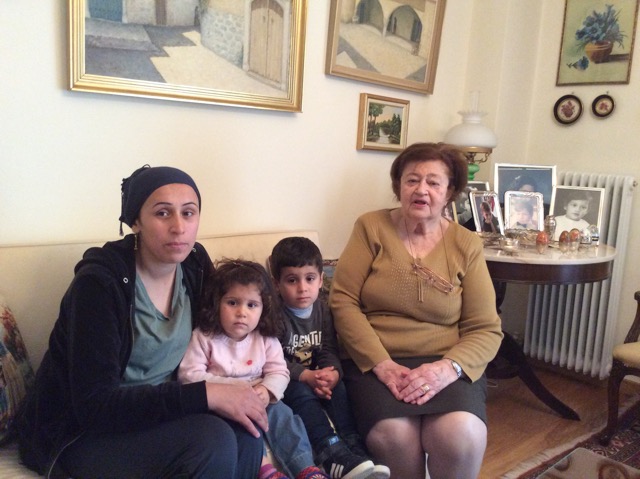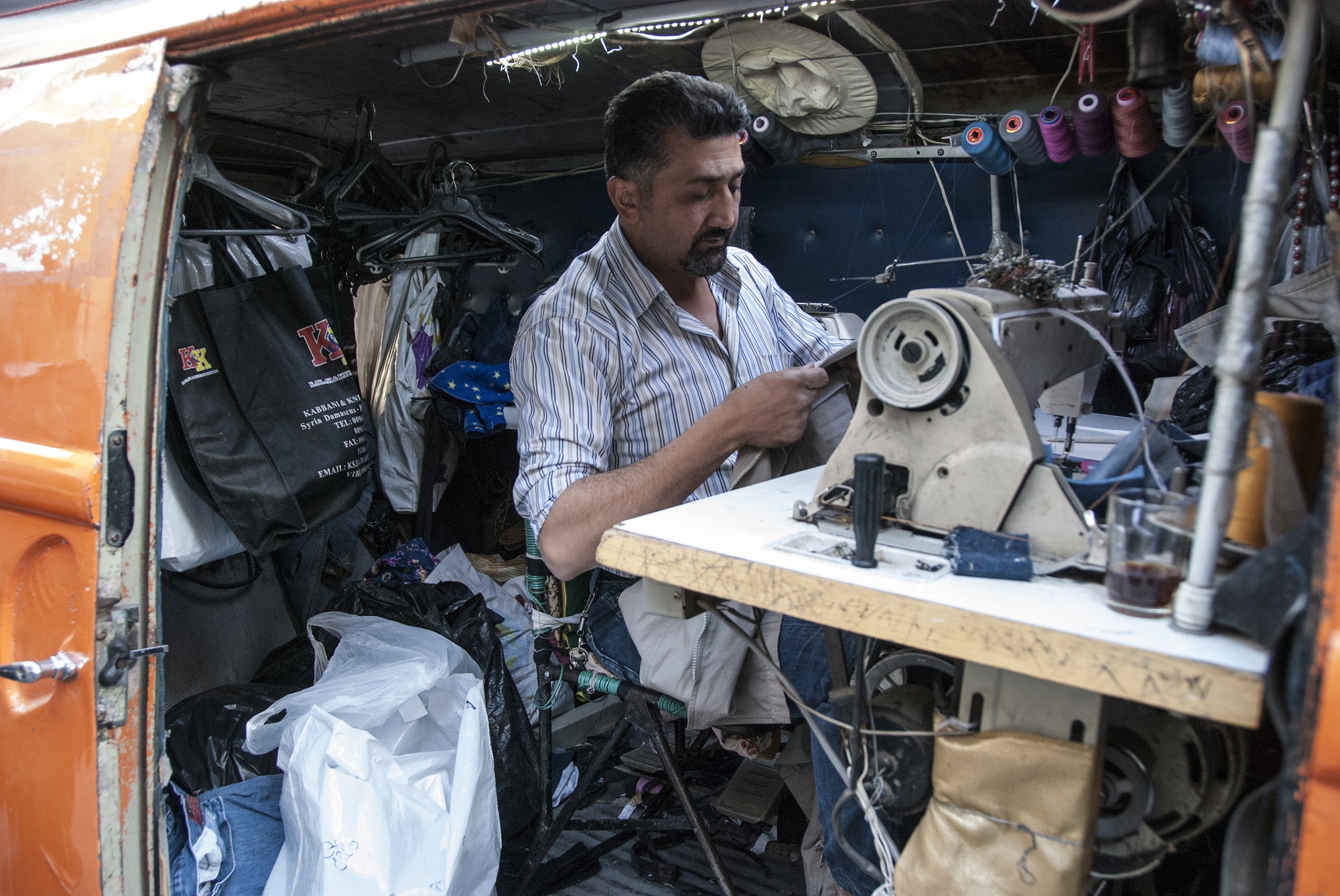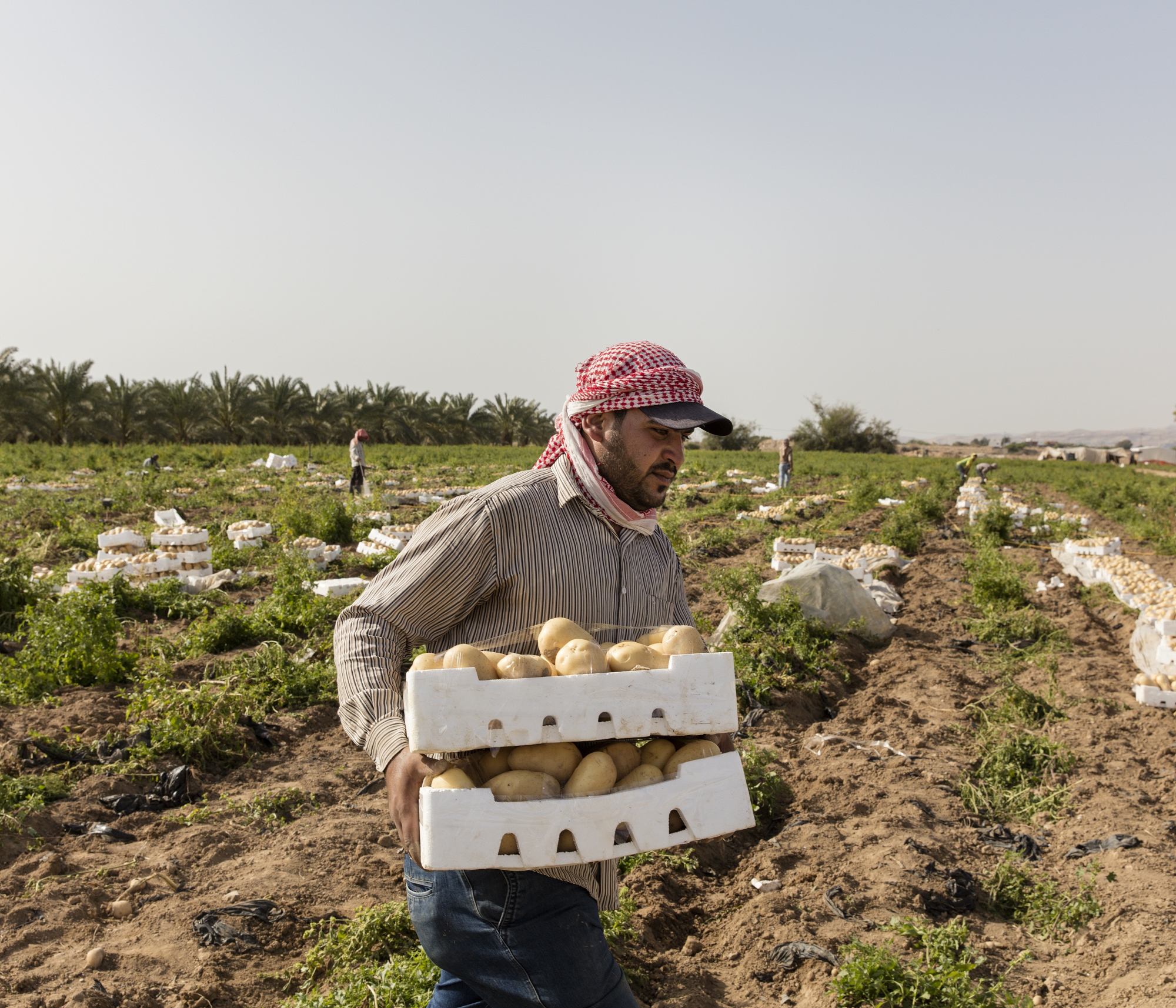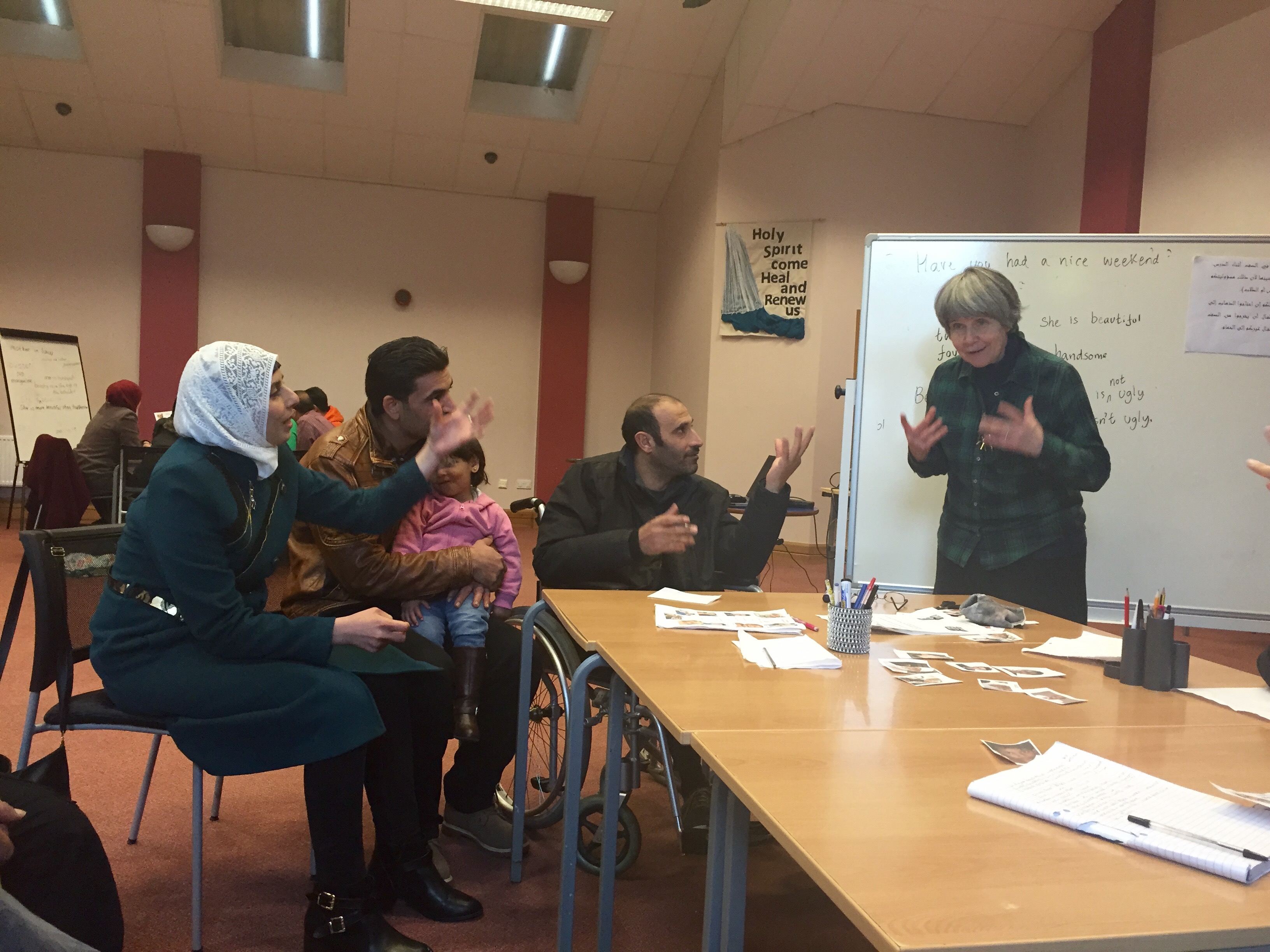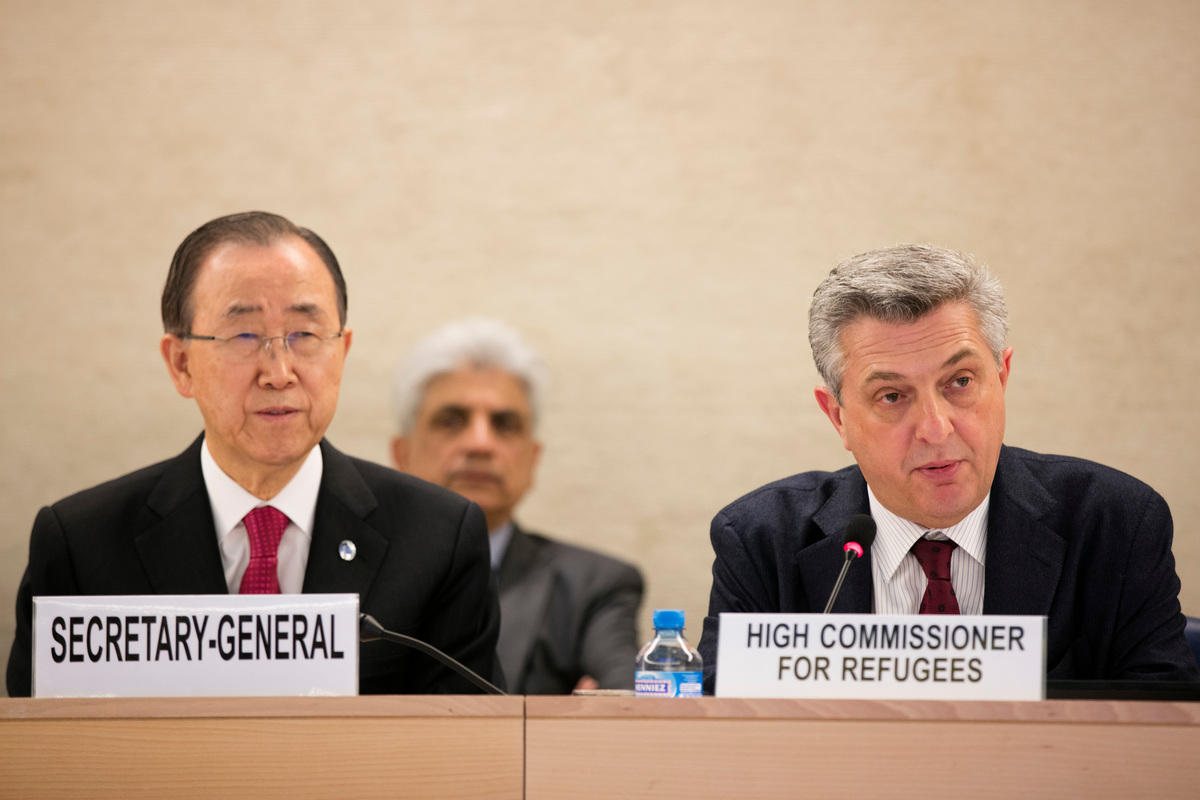Angelina Jolie and UN refugee chief visit Syrian refugees
Angelina Jolie and UN refugee chief visit Syrian refugees

ZA'ATRI REFUGEE CAMP, Jordan, 20 June (UNHCR) - The UN High Commissioner for Refugees, António Guterres, and UNHCR Special Envoy Angelina Jolie visited Jordan's rapidly expanding Za'atri refugee camp today to mark World Refugee Day, which each year is commemorated on 20 June. They toured the camp and met with individual Syrians who had fled the conflict, including a 14-year-old girl recently wounded in the hip by flying shrapnel and a small boy too traumatized to speak.
Evidence of the scale of the Syrian conflict, Za'atri camp is now the second largest refugee camp in the world, home to more than 120,000 people (Kenya's Dadaab camp for Somali refugees is the largest, with more than 400,000.)
"There is no other place in the world where we can see the effects of a brutal war and human suffering at such a dramatic scale," Mr. Guterres said. "To come to Za'atri is to feel that this world has to change."
"We need to raise our voices to say to political leaders around the world to overcome their differences to make sure this war stops," he told reporters at the camp. "In between we need to do everything we can to support Syrians in need."
Ms. Jolie told reporters that "the Syrian crisis here in Jordan and across the region is the most acute humanitarian crisis anywhere in the world today." Refugees from the Syrian conflict, she said, "have left behind a country in which millions of people are displaced… and where at least 93,000 have been killed: the friends, neighbours, fathers, mothers and children of people in this camp today."
Ms. Jolie urged world leaders to work harder to stop the bloodshed: "I pray that all parties in the Syrian conflict will stop targeting civilians and allow access to humanitarian aid. I appeal to world leaders to set aside your differences, unite to end the violence, make diplomacy succeed. The UN Security Council must live up to its promises."
Mr. Guterres and Ms. Jolie were in Jordan as part of a regional visit to draw attention to the crisis in Syria and ask for support for both the refugees and countries that are taking care of them.
Echoing a call for more support for the countries that have opened their borders to refugees from Syria, Norway's Minister of Foreign Affairs , Espen Barth Eide, who accompanied the High Commissioner and Ms. Jolie to Zaa'tari, said he knew of "a lot of richer countries" that are much less generous than Syria's neighbors have shown themselves to be.
In the camp, Ms. Jolie visited a refugee family from Damascus that had crossed the border eight months ago. Ahmed and his wife Mouna decided to flee after a mortar exploded in their house. Ahmed described to Ms. Jolie how he had just left his 4-year-old son Hamad, who suffers from a birth defect and cannot walk, playing on the floor in a room when the explosion occurred. When he returned, he found his son traumatized and all but deaf. The shock wave had shattered his ear drums. An emergency operation in Syria was not successful. The family fled shortly afterwards. Mouna was pregnant with the family's fourth child when they arrived in Jordan with nothing but their clothes in a small bag. "I tried to stay," Ahmed said. "I wanted to stay but after the bombing, it was just too difficult."
In Za'atri, Mouna told Ms. Jolie, her family is safe but still haunted by what they have witnessed. The children " lived in extreme fear in Syria because of the aerial bombardments," she said. "Even in the camp, when a plane comes over, the kids get so frightened. They run away and hide."
Ms. Jolie listened quietly to the story. She said: "It's very hard for us to understand what you went through. Your suffering is so great." Then she added, "it's clear that the conflict must be brought to an end."

Later, in another part of Za'atri, High Commissioner Guterres visited a girl named Duha, 14, who was wounded by a shell in her home region of Dara'a , while standing outside her house alongside her cousin. Her cousin was killed in the blast. Duha was hit in the waist. Duha's family, including five brothers and sisters, arrived in Za'atri just three weeks ago. She is waiting to have her wound treated and still must change the dressing herself each day. She has not been able to attend school. The High Commissioner examined her medical chart , asked if she was in pain and requested to be kept apprised of her progress.
"We are here to mark World Refugee Day and to stand by the Syrian people who are suffering so much in this tragic hour," Mr. Guterres said.
Also on World Refugee Day, Mr. Guterres met with Jordanian government officials, including the Prime Minister, Dr. Abdullah Nsour, and Crown Prince Feisal bin Al Hussein, who stressed the growing economic burden Syrian refugees were placing on Jordan's public services and infrastructure. In the evening, Mr. Guterres joined U.S. Secretary of State John Kerry and Assistant Secretary for Population, Refugees and Migration, Anne C. Richard, via live video link to Washington as part of a special event highlighting "the challenges refugees face around the world and honouring their bravery and resilience in working to overcome them."
By Andrew Purvis with Don Murray and Melissa Fleming in Za'atri refugee camp, Jordan


